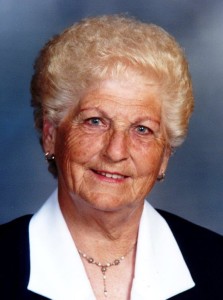After a warm reception by multitudes who attended Mass in Havana’s Revolution Square a day earlier, Pope Francis heads east to Holguin, Cuba, where he will hold a second Mass on Revolution Plaza.
Later Monday, he flies to Santiago, where he will meet with Catholic clergy.
On Sunday, Francis had a “friendly and informal” meeting with Fidel Castro at former Cuban President’s residence, the Vatican said.
It lasted about 30 minutes, with the Pope and the communist leader exchanging books about religion. About 10 members of Castro’s family were present, according to the Vatican.
Castro, who is 89, rarely makes public appearances. He and Francis talked about the common problems of humanity, including environmental degradation, the Vatican said.
Castro’s son, Alex, photographed the meeting.
During the Mass earlier Sunday, the pope told the crowd of many thousands in Havana to “serve people, not ideas.”
“There is a kind of service which truly serves,” the Pope preached during his homily, “yet we need to be careful not to be tempted by another kind of service, a service which is self-serving.”
“There is a way to go about serving which is interested in only helping ‘my people,'” Francis continued, in remarks that some analysts interpreted as a criticism of Cuba’s communist government. “This service always leaves ‘your people’ outside, and gives rise to a process of exclusion.”
The Cuban government had anticipated that some 100,000 people would turn out to see Pope Francis.
The Pope gets political
Since landing, Francis has made comments that many have considered carefully critical, and he has criticized Cuba in the past. In a 1998 book that he edited, he wrote that Cuba’s “authoritarian” and “corrupt” regime should be scrapped in favor of a representative democracy.
Francis is the third pope to visit Cuba, after St. John Paul II in 1998 and Benedict XVI in 2012. Francis’ call for Cuba to “open itself” to the world echoed John Paul’s remarks, a sign of the Catholic Church’s longstanding efforts to carve out space in a country that has been officially atheist for decades.
The Vatican has said the Pope believes religious freedom in Cuba means more than the ability to worship freely. It also entails the right to open schools and practice acts of charity, as well as other missions.
Raul Castro praises pope
President Raul Castro, who has said the Pope has inspired him to consider joining the Catholic Church, effusively praised Francis on Saturday, particularly for his criticism of consumerism and environmental degradation. He also thanked him for his role in restoring ties between the United States and Cuba, while calling for the closing of the U.S. military base at Guantanamo Bay.
On Tuesday, the Pope will fly to Washington, a visible sign of the detente he has helped broker between Cuba and the United States.
“For some months now, we have witnessed an event which fills us with hope,” the Pope said. “The process of normalizing relations between two peoples following years of estrangement.”
Francis also called the restoration of diplomatic ties “an example of reconciliation for the entire world.”
Some American conservatives, however, have criticized the restoration of ties with the communist country, saying that the United States should have required the release of political dissidents.
U.S. President Barack Obama and President Castro spoke on the phone Friday to discuss the process of normalizing relations between the two countries.
Just last week, the United Nations announced that Raul Castro would travel to New York to attend the U.N. General Assembly. It will be his first visit to the United States in more than half a century.



